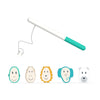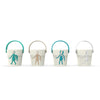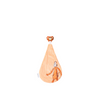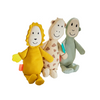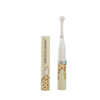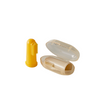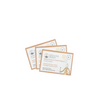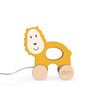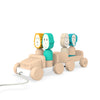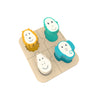When Do Babies Start Walking?
Ready to hear those little feet pitter-patter on the floor? It's one of the most awaited milestones and like most parents - you're probably eagerly waiting, wondering when your little one is going to start walking.
So When Do Babies Start Walking?
Although you might have heard of some uber-precocious 6-month-old baby walking, most babies usually reach the milestone of walking a little later, between 9 and 18 months.
Babies need to go through a number of other milestones to develop the necessary skills before they can even think of taking their first steps. The journey to walking starts very early when you have your baby practise tummy time, which helps to reinforce and establish strong control over the head and neck. Tummy time also sets the baby up for learning how to turn over and then sit up alone. In there, most babies continue to crawl (usually about 7 months), then pull themselves up to standing (usually about 9 to 12 months), and then cruise.

Cruising, which takes place from 9 to 12 months, is the baby's way of testing the walking waters and is one of the main signs that your baby can soon walk. Your child will carry out a few quick first steps while holding on to anything for support — the sofa, coffee table, pretty much everything in sight, just make sure any wobbly furniture is baby-proof.
Your baby will soon start walking independently. It's common for babies to spend a few weeks learning each new skill before moving on to the next, but not every child follows this pattern, or even the same progression. Some children crawl for a few days and then get up and cruise, some crawl for months before they stand up, and some children never crawl. Typically speaking, until baby cruises with faith, you'll want to be on high alert, waiting for the baby to take the first steps. Even if your baby has learned walking skills, it will take them longer to get the confidence to actually do it.
How to Help Baby Walk

The good news is that you don't need any expensive equipment to help the baby develop the main walking skills that are needed. Everything starts with tummy time and then the learning of one skill progresses into the next. Tummy time leads to rolling to sitting to walking and pulling up for most kids. Here are a few ideas on how to motivate your baby to walk:
Spend less time carrying your baby - We all love to cuddle our children, especially when they are so small and can fit in our arms. However, spending so much time carrying a baby is one of the reasons your child can avoid walking. If they get the chance, your baby will never be motivated to move more on their own. Giving your little one plenty of time each day to explore and grow their skills will hopefully help motivate them to reach their walking milestone.
Introduce a push toy - A push toy can help your child learn to walk forward with support once the child is upright and cruising along furniture. Some of those toys might also have the wheels programmed to travel more slowly while the child is learning first. But you don’t have to spend money on a new toy when teaching a baby to walk. You could even encourage your baby to push a box around the house—it’s an effective (and super-low cost!) push toy.
Skip the baby walker - Although they are common with parents, in reality they slow down the learning-to-walk process of infants. Walkers hold the child in a sitting position with flexed knees, and use their lower legs to push the walker forward, which is not a normal posture for walking. Walkers can also be hazardous if they collapse or fall down stairs, which is why the American Academy of Pediatrics recommends that walkers should be avoided.
Minimise the time your baby spends in a playpen - The disc-type activity centres sitting and playing with toys in children and babies are good but they don't help with motor skills. When a baby is confined to a playpen or trapped in a playpen, there's not enough space or energy for them to crawl, stretch, turn over, or stand up, which might make your child one of the late walkers. There's nothing easier when it comes to learning those vital skills than being on a secure floor away from furniture with sharp corners and any debris that your baby might move on or slip on.
Let baby go barefoot - While you may want to dress your baby in some cute shoes the second they start to cruise, most experts recommend letting the baby go barefoot at first, as it allows them to use their toes for balance. When you do start shopping for baby shoes for your new walking baby, choose ones with flexible, light soles to avoid a tripping hazard and enable the muscles and bones in baby’s feet to develop properly.Help - My Baby Still Won’t Walk
Many parents begin to panic if their baby isn’t walking by their first birthday — and even more so as the 18-month mark goes by and the first steps of the baby are not unfolding. But don’t be worrying yet - some babies are late walkers. There are many causes of delayed walking, many of which are not severe but more linked to the temperament of the infant.
Bear in mind the milestones aren't set in stone. So, for instance, a child who does not attempt to crawl or pull up for 12 months is more troubling than a child who is consciously pulling up and cruising — but not yet walking — at 15 months. Even though both of these children have a relative motor delay, the concern is the lack of forward progress in the 12-month-old.
Some questions about delayed walking in babies should of course be reported to a paediatrician so that you can find out if further testing is required. But bear in mind, some babies may simply be late bloomers. So long as the baby travels through certain milestones in a good direction, it's possible that they are only taking their time reaching the milestone of walking. Enjoy it now, because once your baby takes off on their own, you’ll be wishing for the days when you weren’t running after them 24/7!













